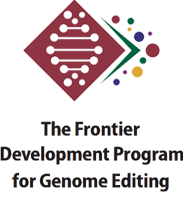 Doctoral Program for World-leading Innovative & Smart Education
Doctoral Program for World-leading Innovative & Smart Education
Activity
Second Seminar in Hiroshima University's Advanced Science Series Held, on the Theme of "Developing a Future Society with Genome Editing"
September 9, 2021
On September 9, 2021, Hiroshima University held the second seminar in the advanced science seminar series on the theme of "Developing a Future Society with Genome Editing."
The second seminar featured a lecture entitled "Simple Method for Producing Genome-Edited Mice/Rats Using the GONAD Method," by Dr. MATSUYAMA Makoto, Head of the Division of Molecular Genetics, Shigei Medical Research Institute.
This lecture began with an outline of what genome editing is, and explained the GONAD method by specifically mentioning its differences from the existing genome editing/genetic modification technologies and its advantages. The conventional genetic modification technology for mammals that uses ES cells can be used only for mice, and requires specialized skills as well as considerable cost and research time. However, the GONAD method has successfully eliminated these barriers. In addition, the GONAD method is of high value in terms of animal protection because it allows the reuse of animals. Furthermore, the GONAD method was successfully applied to creating the most suitable rat model of hypertension, and the use of this model as a hereditary disease model led to the development of reagents. Dr. Matsuyama explained these milestones based on data. The GONAD method can be applied to mammals other than mice and rats, and he expressed his belief that the GONAD method has promising prospects.
In Hiroshima University's advanced science seminar series "Developing a Future Society with Genome Editing," speakers mainly
from Hiroshima University in charge of the Frontier Development Program for Genome Editing (selected as a Doctoral Program for
World-leading Innovative & Smart Education) introduce their efforts related to genome-editing technology-one of Hiroshima University's
strengths-and give clear explanations of the present status and future of the technology. The series is planned to comprise four seminars.
Details about the next and subsequent seminars will be given on the website of the Frontier Development Program for Genome Editing and through
other media. We look forward to having many people attend the seminars.
